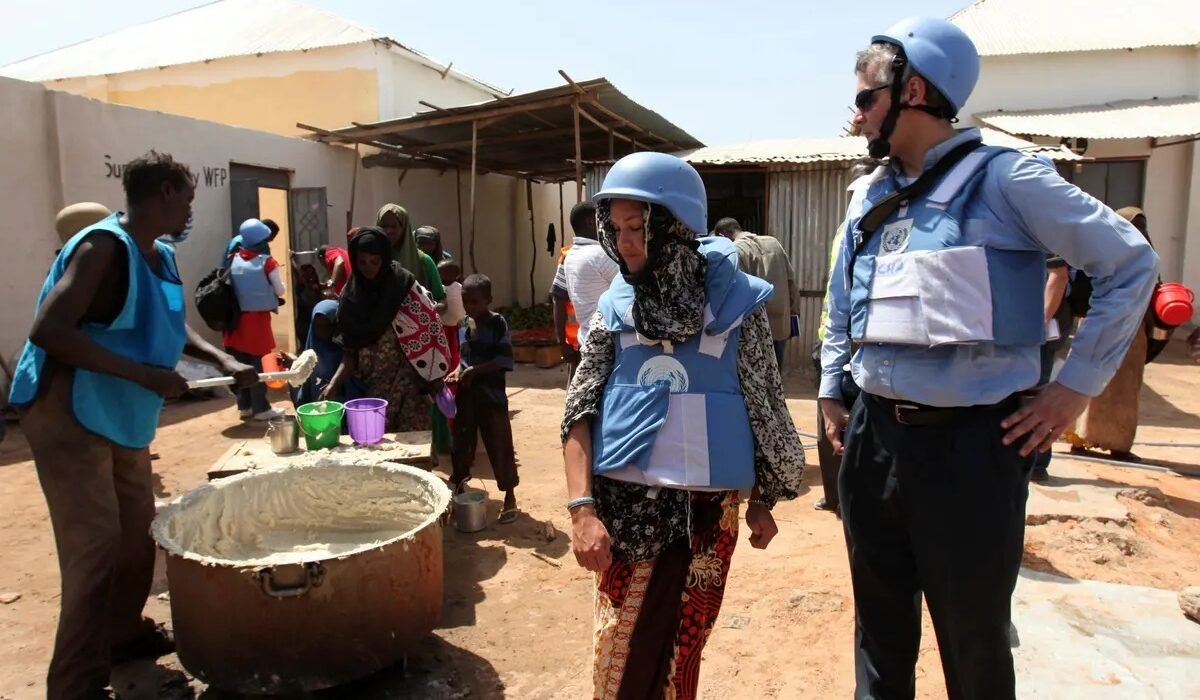Somalia, a country plagued by instability and violence, has long been a recipient of international aid in an effort to alleviate poverty, hunger, and build resilience. However, amidst these noble intentions lies a dark reality – corruption in aid activities. This insidious problem not only hampers development but also exploits the desperate circumstances of its people, leaving a devastating impact on an already fragile nation.
One of the primary reasons corruption thrives within aid activities in Somalia is the weak institutional framework. Years of civil unrest and political instability have eroded the country’s governance structures, making it susceptible to pervasive corruption at all levels. This lack of accountability allows individuals to misuse and divert funds allocated for development projects, undermining the effectiveness of foreign aid.
One major manifestation of aid corruption is the misallocation and embezzlement of funds meant for public projects. This denies the Somali people much-needed infrastructure and services, which are essential for their well-being. Roads that should have been constructed to facilitate trade and connect remote regions remain incomplete, while schools and healthcare facilities continue to be underfunded, leaving communities deprived of basic necessities.
The politicization of aid is another disturbing aspect of corruption in Somalia. Aid activities become entangled in political rivalries and power struggles, leading to diversion based on political affiliations rather than actual needs. This not only perpetuates the existing divide but also exacerbates the suffering of the most vulnerable populations, who need assistance the most.
Moreover, corruption feeds into the existing cycle of insecurity in Somalia. When aid resources end up in the wrong hands, they can be used to fund militant groups or perpetuate violence, further destabilizing the nation. This dynamic creates a vicious cycle of underdevelopment, poverty, and conflict, making it extremely challenging to break free from these interlinked challenges.
The consequences of corruption in aid activities extend beyond the immediate impact on development. It erodes public trust in both national and international institutions, fostering a culture of cynicism among the population. This lack of faith reduces cooperation, inhibiting the success of future aid interventions and hindering any potential progress.
Addressing corruption in aid activities in Somalia requires a multifaceted approach. Strengthening national institutions and building capacity for transparent governance is paramount. Donor nations, international organizations, and NGOs need to ensure that aid is delivered through channels that prioritize accountability, with mechanisms in place to monitor the flow of funds and track their usage meticulously.
Transparency must be at the forefront, with clear reporting protocols and independent audits of aid distribution. It is imperative that the Somali government takes decisive action to combat corruption by implementing strict anti-corruption measures and holding perpetrators accountable. Collaboration between all stakeholders is essential for eradicating this embedded problem.
Aid organizations must also practice due diligence when selecting local partners, basing their decisions on merit and credibility rather than political motivations. Safeguards, such as robust oversight mechanisms and performance-based funding, should be implemented to minimize the risk of resources falling into the wrong hands.
Corruption in aid activities in Somalia is a pressing issue that demands immediate action. Without concerted efforts to address this problem, the cycle of poverty, conflict, and underdevelopment will continue unabated. Somalia deserves genuine assistance that promotes sustainable development and empowers its people, rather than exploiting their vulnerability. Only then can Somalia’s potential as a nation be realized, and its people granted the opportunity to carve their own path towards a brighter future.
